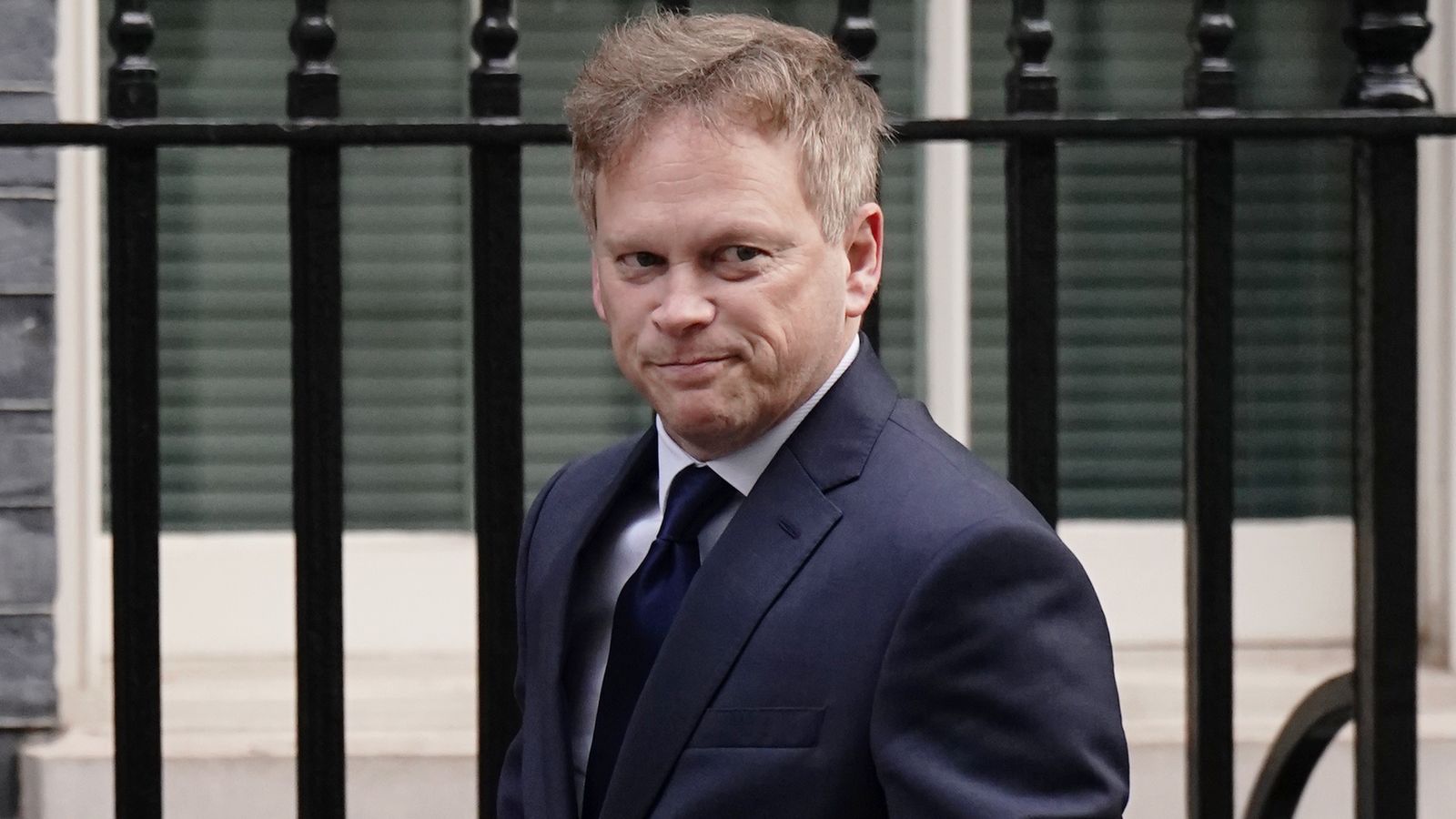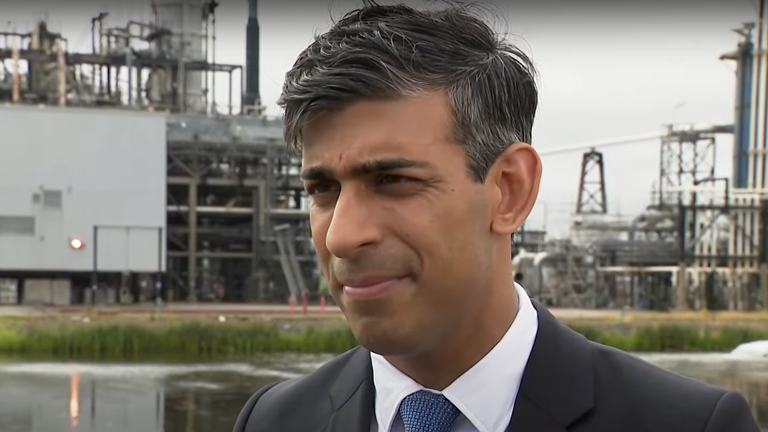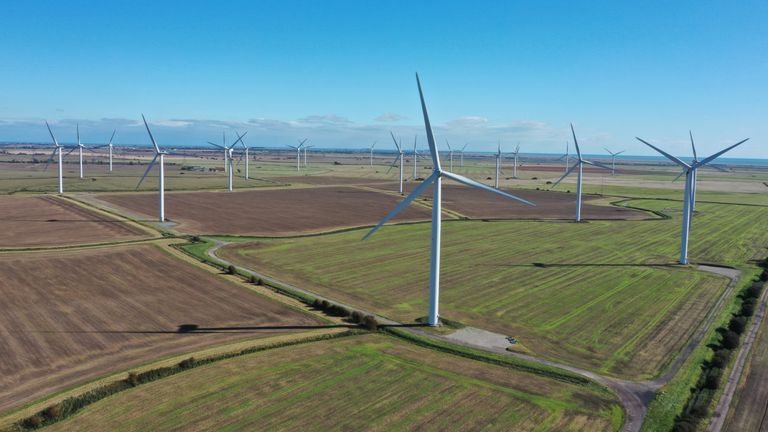UK energy chiefs will gather in Downing Street today to discuss net zero as a debate rages in both main parties about the future of green policies.
Industry leaders from EDF, SSE, Shell and BP will meet Grant Shapps, the energy security secretary, just days after the government announced it would grant more than 100 new oil and gas licences off the coast of Scotland – a move critics claim would drive “a wrecking ball through the UK’s climate commitments”.
Mr Sunak has defended the new licences, arguing that using domestic oil and gas saved “two, three, four times the amount of carbon emissions” than “shipping it from halfway around the world”.
However, he was criticised by those in his own party, including former energy minister Chris Skidmore, who said it was “the wrong decision at precisely the wrong time, when the rest of the world is experiencing record heatwaves”.
Mr Shapps is expected to highlight the government’s North Sea announcement as well as well as the steps it has taken to bear down on protests groups such as Just Stop Oil – whom the Tories are keen to portray as closely aligned to the Labour Party.
He is expected to say: “We need to send the message loud and clear to the likes of Putin that we will never again be held to ransom with energy supply. The companies I am meeting in Downing Street today will be at the heart of that.
Rutherglen and Hamilton West by-election after Margaret Ferrier loses seat – politics latest
“Energy industry leaders can see that this government will back homegrown, secure energy – whether that’s renewables, our revival in nuclear or our support for our vital oil and gas industry in the North Sea.”
According to the Department for Energy Security and Net Zero, Shell UK plans to invest £20-25bn in the UK energy system over the next 10 years, while BP intends to invest up to £18bn in the UK to the end of 2030.
SSE plc have also announced plans to invest £18bn up to 2027 in low carbon infrastructure and National Grid plc will be investing over £16bn in the five-year period to 2026. EDF has outlined plans to invest £13bn to 2025.
The meeting with Mr Shapps comes just weeks after the Uxbridge by-election sparked a debate within both parties over how to sell green policies to the public, after Labour’s narrow defeat was blamed on Sadiq Khan’s ultra low emission zone’s (ULEZ) planned expansion to outer London.
The result has prompted MPs on the right of the Conservative Party to appeal to the PM to rethink the government’s net zero commitments, with calls for delays to a number of targets – including putting back the ban on the sale of petrol and diesel cars from 2030 to 2035.
Another pressure bearing on Mr Sunak is over whether the government should keep its oil and windfall tax after BP last week reported £2bn in net profits.
The £2bn figure was in fact half the $5bn (£4bn) profit the firm achieved in the preceding three months in the first quarter of 2023.
The Liberal Democrats said that nevertheless, the “monster profits” would be a “nasty shock to families who couldn’t afford to heat their homes this year”.
The party’s Treasury spokesperson Sarah Olney said: “The government shouldn’t be hoodwinked to remove the windfall tax by this profit drop. Let’s be frank, these are still huge.
“No family should go cold next winter because the government backed down on taxing the likes of BP.
“It is time to put the needs of struggling families and pensioners over the wallets of global oil firms.”
The government has said it will end the windfall tax on bumper oil and gas profits in 2028 if prices drop.
The windfall tax – 75% of North Sea oil and gas production profits – will continue for the next five years but if prices fall to historically normal levels for six months, the tax rate for oil and gas companies will return to 40%.
Read more:
There’s a lot of noise in the debate over North Sea oil and gas – but the numbers tell a different story
What are the Tories’ green policies – and what could be scrapped?
Companies do not pay the full 75% or 40% rate as they can offset tax liabilities on investment they make.
The windfall tax, which is also known as the energy profits levy, has raised around £2.8bn to date and is expected to raise almost £26bn by March 2028, according to the government.
Asked about BP’s profits during a visit to Teesside’s transmission system gas terminal on Tuesday, Mr Shapps said: “I think what people want to know is that they [BP] are being properly taxed, and we’ve been taxing them 75% of their profits through this windfall tax, and that we’ve used that money to pay about £1,500 per household to cover people’s energy bills this last winter.
“It may not have felt that way, but [bills] would have been £1,500 on average higher if we hadn’t taxed the energy companies,” he added.


